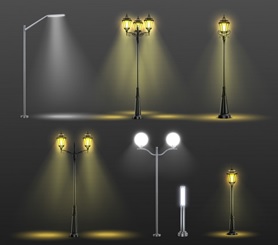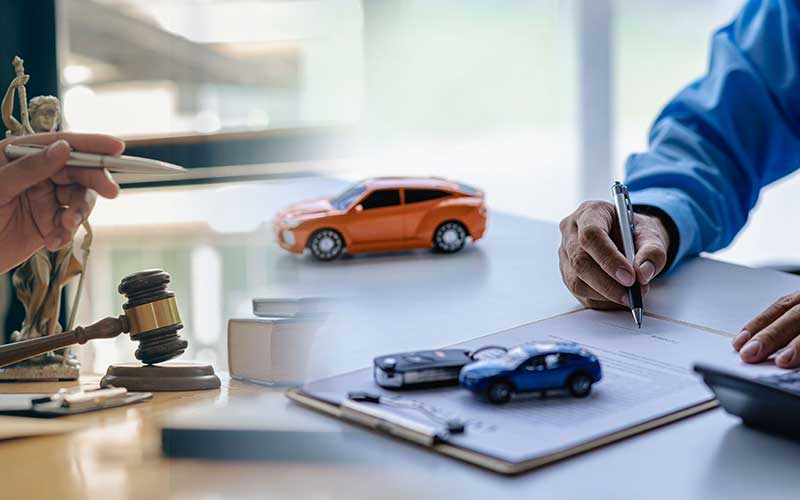The days of everyone in the neighborhood playing kick-the-can in the middle of the street in the midst of the summer are long gone. Whether you attribute it to nervous parents or uninterested youngsters, one thing is certain: many communities today lack the sense of community that existed just 10 or 20 years ago. The absence of this sensation raises questions about the overall safety of the neighborhood.
It takes a village to keep your neighborhood secure, but it starts with you. Here are a few easy pointers.
1. Improve Street Lighting
Burglars frequently prefer to target low-density residential areas. So, if your area has a lot of open space and few houses, make sure that space is adequately lit. The use of streetlamps isn’t the sole option. With time, the led light strip ideas have evolved greatly and street lights are accessible in various styles and designs.
In the evenings, request that each household turns on their porch lights with motion detectors in the backs or sides of the house so that possible intruders don’t have a place to hide. In some cases, AIO solar street lights can be beneficial.

Source – Freepik
2. Know Your Neighbors
Knowing your neighbors can provide an extra set of eyes on your house, whether you’re going on vacation or traveling to work (and maybe an extra set of keys in case of emergency). People care about the people they know, so getting to know your neighbors and developing relationships helps to create a feeling of community and a desire to look out for one another.
3. Hire Security Guard
You might be concerned about vandalism or break-ins in your neighborhood. Hiring a security guard is one option. Not only can a security guard keep an eye on your home, but also on the rest of the community.
Even if they’re not in uniform, their presence alone can dissuade crime. A security guard in uniform can also pass for a cop when seen from a distance. In addition, a security guard can move around. Suspicious people looking to steal something may be deterred if you don’t stay in the same place.
4. Coordinate
Many security problems can be addressed effectively through HOA meetings, the formation of a neighborhood watch organization, and other community-wide measures. There may be instances, though, when you require a little more power and authority to protect your safety.
Attend public meetings, call lawmakers, and speak with local law enforcement officers to communicate with your local and state governments during these periods. For instance, if your neighborhood has any big company like a baby car seat manufacturer firm, then you can talk with the company so that they can install lights and CCTVs in their parking lot and surrounding areas.
5. Install Alarm System
Installing a home security system can help keep your family and house safe. When your alarm goes off, it notifies the authorities and alerts your neighbors, allowing them to keep a watch out for you. A security system may also benefit your neighbors. For example, the CCTV cameras installed outside your home can aid in the detection of crimes occurring next door or offer information.
6. Buddy System
Individuals who are alone are the victims of the majority of violent crimes. You may advocate for the buddy system, in which children and vulnerable people should always have at least one friend when they leave the house, whether it’s to play on the street or walk to school. A buddy can also act as a contact, a point person, or simply someone who can make sure your child is safe when he or she returns home.
7. Start Neighborhood Watch
Consider forming a neighborhood watch program if one does not already exist on your block or in your community. The first step is to locate potential participants among your neighbors. Once you’ve gathered a group of people who are willing to put in the effort, contact your local police department and inform them of your plans. Many local law enforcement agencies will send a cop or two to your neighborhood watch meetings, which may be an excellent resource for learning how to recognize and report suspicious conduct.
8. Secure Your Own Area
Neighbors can only do so much to assist you in keeping your home safe. Finally, you are responsible for securing your property, so take some time to assess your own home’s vulnerabilities and determine how to address them. Make sure to store custom gun cabinets safely.
Leaving your door unlocked while you leave the house, for example, is a surefire method to encourage crime. If you forget to lock your door, certain smart locks allow you to do so remotely; thus, upgrading your door lock may be a good option. When the doorbell rings, new camera technologies allow you to see who is on your front porch, and fixing broken or damaged windows is also a useful safety precaution.
Conclusion
Creating a safer neighborhood can be more than a chore; it can also be an opportunity to meet new people, develop new connections, and form new bonds with your neighbors. At a community level, the greatest method to solve the local crime, accidents, and injuries is to work together. So devote some of your time to promoting community safety and getting the benefits of a safer community and new friendships.




